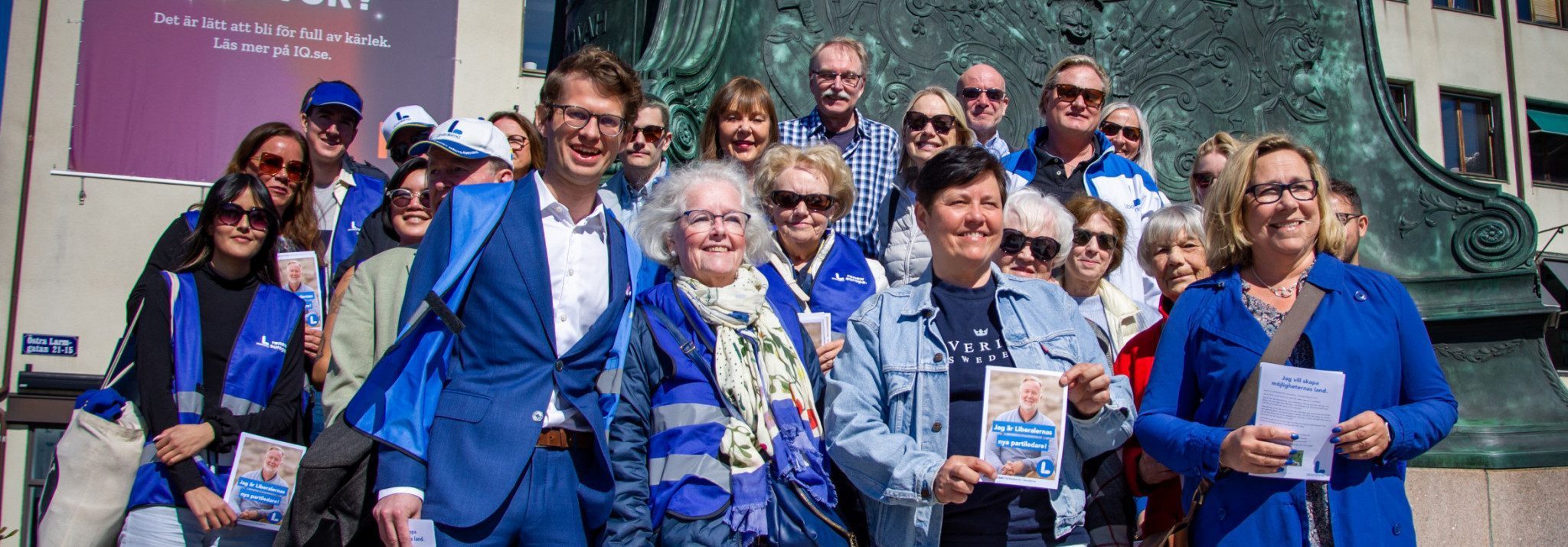
The School Policy of the Liberal Party
School has always been the Liberal Party’s most important political issue. This is of course related to the fact that education and knowledge are the main tools for an individual to be able to shape their own life and their own future. There is also no better tool than education for creating a growing modern economy with citizens who support a strong democracy. That is how the Liberals have profiled themselves on both a national and a local level for more than 100 years.
For the Liberals, knowledge focus in schools is about giving all children and young people the right foundation to reach their full potential. For us, equality means that all students should be given the chance to grow. Students who fall behind should be given support, and students who can get ahead should be challenged. This requires a school policy that stands for knowledge and protection of teachers’ knowledge assignments, and that sees the need for high expectations.
For students with special study talents, there should be so-called cutting-edge education, in both primary and secondary school, in which they should be given the opportunity to study at a faster pace and with a curriculum that includes more advanced courses in, for example, mathematics or science. This was introduced by the Liberals in Sweden in 2009, but the Social Democratic government has now stopped the possibility to expand cutting-edge education. If the Liberals get into power again, we will change that.
Gothenburg has many well-functioning schools, municipal and independent, but there are also big problems, especially in our vulnerable areas, where schools often do not quite succeed in compensating for the worse conditions, such as lack of knowledge of the language and a weak study tradition, which the students bring with them from home. We need to change this.
Even though, overall, there are enough places for everyone in good schools in Gothenburg, there are still some schools with a special focus, such as bilingual schools, for which there are long queues. The current queuing system often requires people to enrol children in schools almost already at birth, and this makes it more difficult for everyone who moves to Gothenburg. We want to change this by encouraging the expansion of schools and specialisations that have queues, as well as changing the queuing system, so people do not have to queue this long in advance.
For students with high ambitions, Gothenburg offers a number of schools with both Swedish and English as the languages of instruction. Foreign students who are only going to be in Gothenburg for a few years usually attend ISGR. There, the language of instruction is English and they study for the IB. The advantage of ISGR is that foreign students do not need to join any queue but are admitted immediately. The grades they achieve at ISGR can be translated into the Swedish system to allow a switch to a school that follows the Swedish curriculum, for example when starting upper secondary school. It should be easy to go from the international to the Swedish curriculum.
As Liberals, we see a need to offer more attractive schools in Gothenburg for children of expats than we have today in the form of ISGR. We therefore welcome independent school actors with such a profile who want to establish themselves in Gothenburg. We believe that it may also be of interest for the municipality to investigate a new municipal school with a focus on the children of expats. If this does not prove possible, an existing municipal school could be instructed, as part of its offering, to provide an education or specialisation aimed at the target group of expats.
As Liberals, we understand the importance of a well-educated workforce for the growth of our companies, our city and our region. Without expats, many of our companies would not be able to grow and invest at the pace that they want and that we see as necessary to transition to a green knowledge economy.
We also see the importance of foreign students and researchers choosing to further their education and conduct research at our universities. This way, Chalmers University of Technology and the University of Gothenburg can continue to maintain their current high international class. It also means that Gothenburg can continue to be a city of knowledge and development!
In order for skilled workers to be able, and choose, to move to Gothenburg, temporarily or permanently, the availability of good schools and good housing is key. We currently have a good range but it needs to be both better and broader.
As Sweden’s school party, the Liberals are the guarantor for this issue being high on the municipal political agenda.